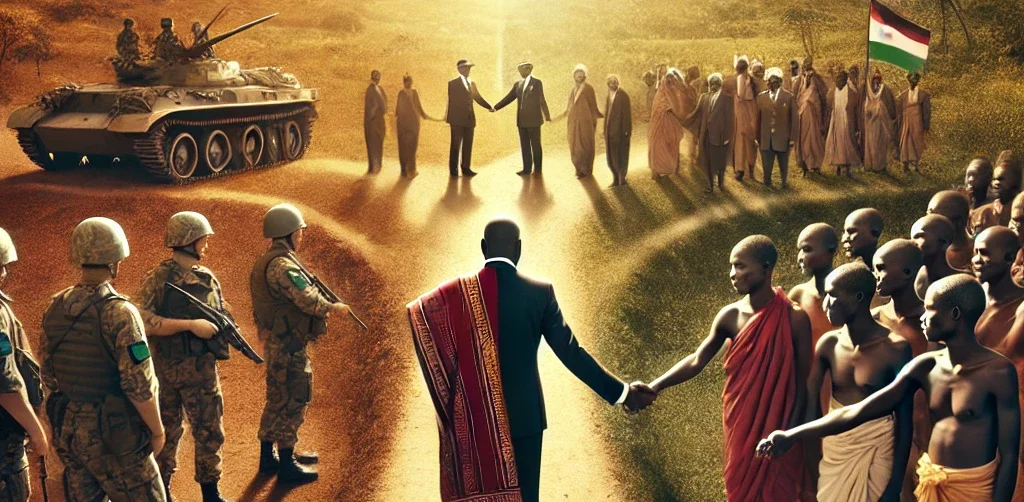Rethinking Peace and Democracy in Africa: The Case for Democratic Rotation
Introduction
Africa has long been a continent marked by both rich cultural diversity and persistent conflicts. Despite numerous international interventions, many Western peace paradigms have failed to deliver lasting solutions. In his groundbreaking paper, The Failure of Western Peace Paradigms of Conflict Management in Africa, Célestin Tagou argues that the root of this failure lies in a fundamental mismatch between Western and African approaches to conflict resolution.
Western vs. African Peace Paradigms
Western models, such as Pace bellum (War for Peace) or Justicia Pacis (Justice for Peace), often create a win/lose dynamic, where one party dominates while the other is marginalized. This approach tends to postpone conflicts rather than resolve them. In contrast, African traditions emphasize Dialog and Reconciliation, aiming for a win/win outcome where all parties transcend their differences and emerge as collective winners.
The Flaws of Imposed Liberal Democracy
The imposition of liberal democracy in Africa since the 1990s has exacerbated divisions. In this system, electoral winners take all, leaving losers with no stake in governance—a recipe for exclusion in ethnically divided societies. Tagou highlights how this has contributed to recurring conflicts and political instability across the continent.
A New Path: Democratic Rotation
Inspired by the governance models of international organizations like the UN and AU, Tagou proposes Democratic Rotation as a viable alternative. This system ensures that leadership roles are rotated among key stakeholders, fostering inclusivity and reducing ethno-regional tensions. Case studies from Cameroon and the Democratic Republic of Congo (DRC) illustrate its potential to transform conflicts and promote sustainable peace.
Key Takeaways
- Cultural Relevance Matters: Peacebuilding must align with local philosophies to succeed.
- Inclusivity Over Exclusion: Democratic Rotation offers a fairer alternative to winner-takes-all politics.
- Learning from Africa: The continent’s traditional methods of reconciliation, like Ubuntu, hold valuable lessons for global conflict resolution.
At Afrika Institut Dortmund, we believe in reimagining peace and governance through African perspectives. Join the conversation by sharing your thoughts in the comments or exploring our resources on transformative justice.
Share this content:



1 commentaire